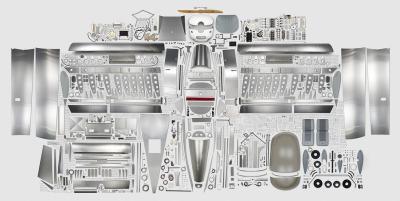Someone the other day suggested I should consider the utility of a 'context-free language' for certain applications (think: learning engineering). This article offers one of the (many) reasons why context-free language is a chimera. It poses a simple question: when you consider the way some things are made up of other things, what counts as an object? The only reasonable answer is 'mereological conservatism', which hold that smaller objects sometimes, but not always, compose some further object. For example: a car without an engine might not be a car, but a car without a drive shaft probably is a car. What makes the difference? Context. Image: Todd McLellan.
Today: 0 Total: 440 [] [Share]




